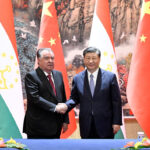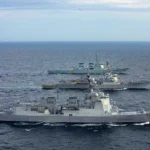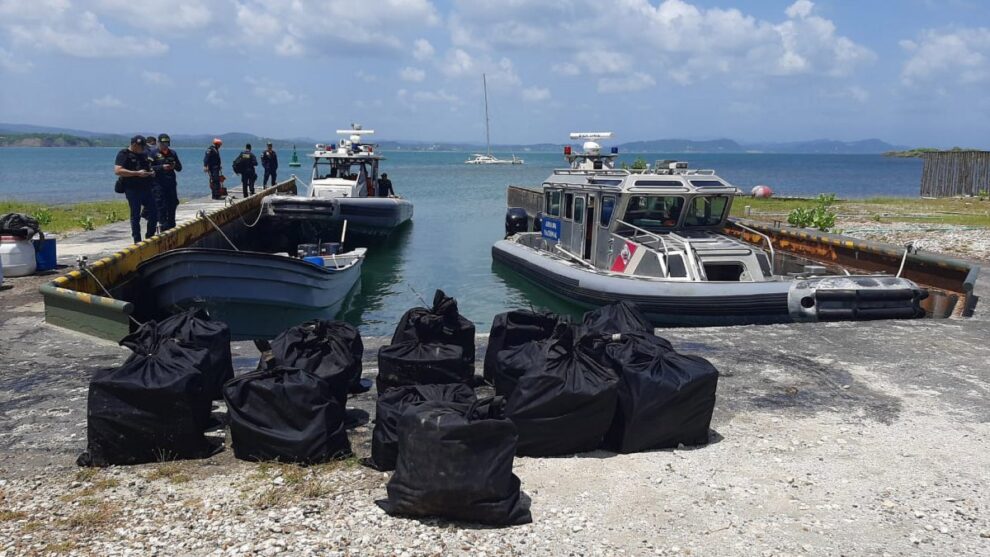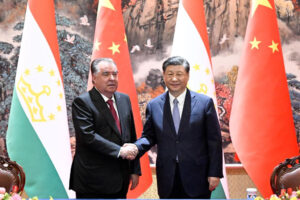The Ecuadorian Armed Forces seized more than 8 tons of cocaine and arrested 12 criminals in just five days, Ecuadorian daily Primicias reported. “This is part of the joint efforts that Ecuador is carrying out with the U.S. Drug Enforcement Administration [DEA] and the U.S. Coast Guard,” the daily added about the September 11-15 operations.
Authorities reported that this was the third drug seizure that same week in Manabí, which is considered a strategic point for the stockpiling and subsequent movement of large quantities of cocaine to the United States and Central America. In recent years, the region has seen important blows to criminal activities, with the support of U.S. authorities.
“After the pandemic, Ecuador not only became a transit point, but also a warehouse for drugs coming from Colombia and Peru,” Pedro Yaranga, a Peruvian strategic security and drug trafficking expert, told Diálogo on October 13. “From Ecuador, the drugs are sent to Mexico and mostly to Europe and the United States, using various routes.”
“We are strengthening efforts to eliminate the threat generated from the large resources coming from drug trafficking,” the Ecuadorian Navy told Primicias. “These feed transnational criminal organizations and organized criminal groups.”
On September 21, in a simultaneous operation carried out in Manta, Portoviejo, Montecristi, and Bahía de Caráquez, in Manabí province, the Ecuadorian National Police’s National Transnational Crime Investigation Unit dismantled a criminal gang dedicated to large-scale cocaine trafficking from Ecuador to Central America, with the United States as the final destination, the Ecuadorian National Police said. During the interdiction, authorities seized 5 tons of cocaine, 10 vehicles, nine firearms, and different rounds of ammunition.
The operation, dubbed Gran Jericho 34, involved agents from special units of the Ecuadorian Police and was the result of a great deal of intelligence work with the support of the U.S. Embassy in Ecuador, Ecuadorian daily El Universo reported.
Ecuador’s diverse transnational criminal landscape is dominated by insurgent groups, Colombian criminals, and Mexican cartels. These gangs are strengthening their connections with international criminal organizations, serving as middlemen in Ecuador’s ports with destinations that includeEurope, the United States, and even Australia, Insight Crime, an organization dedicated to the study of organized crime in Latin America, indicated.
“Some of the organized crime that was in Colombia moved to Ecuador to store drugs,” Yaranga said. “They operate quietly and with specific tasks to ensure transshipment and commercialization.”
The involvement of the United States and the success of the operations in the Ecuadorian investigations is no coincidence.
Both nations signed an agreement in Washington to strengthen security cooperation against illicit transnational maritime activities, the Ecuadorian Foreign Ministry reported on September 28. Through the agreement, the Ecuadorian Navy and the U.S. Coast Guard can conduct combined maritime operations against drug trafficking; organized crime; migrant smuggling; and illegal, unreported, and unregulated fishing.
“The agreement reaffirms our governments’ commitment to fight one of the common enemies of humanity: transnational organized crime,” said Ecuador’s Foreign Minister Gustavo Manrique, at the signing of the agreement. “This agreement strengthens the bilateral fight against these nefarious activities and will serve to dismantle corruption schemes, money laundering, and other related crimes.”
In addition, a formal partnership has been in place since August for cooperation in strengthening the capability of law enforcement and the judicial sector to combat transnational organized crime and reinforce the security of citizens and communities in Ecuador. This agreement includes training and equipping judicial officials, the U.S. Embassy in Ecuador said.
“Now more than ever, the United States stands with Ecuador in the fight against organized crime and we are committed to our partnership in the security, justice, and rule of law sectors,” said U.S. Ambassador to Ecuador Michael Fitzpatrick. “We stand united today, tomorrow, and for as long as it takes, to mitigate the urgent threats facing our countries and peoples.”
“The DEA is going to provide Ecuador with logistics and technological capabilities and training for the Armed Forces and the National Police, which can yield excellent results in the medium term,” Yaranga added. “Today Ecuador needs radar technology, satellite systems, and continuous surveillance, especially of high-tonnage ships, to locate and control suspicious cargo. The United States provides all that help and more.”
Source: Dialogo Americas
















